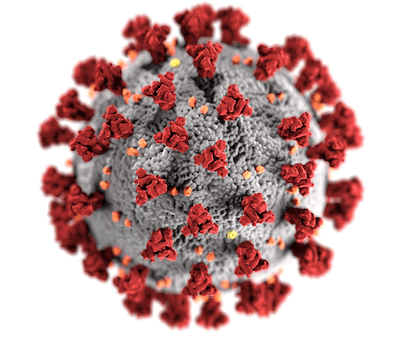Like every individual and organization out there, we are constantly exploring ways in which we can join the fight against COVID19.

Some of the most compelling projects include:
- Reduce the death toll
- Support our local community
- Advance our knowledge and understanding of the virus
- Alleviate the socio-economic pains, especially for those who are most vulnerable
Here at Tomorrow.io.org, we think three ideas are particularly compelling for how weather can potentially help us beat COVID-19 and beyond. While we’ll focus primarily on those three ideas in this article, we welcome more suggestions, thoughts and ideas from the community. In addition, these ideas are better thought of as questions given the many unknowns and lack of concrete data. By asking these questions, however, we believe this is the first step to help move us closer to an answer. Finally, our weather insights and impact API is available to researchers for free, as the most important thing we can right now is to come together to support the fight against COVID-19. #itisgoingtotakeavillage
1. Mapping Air Quality, Pollution, and COVID19: How should we explore using big data to map COVID-19 and air quality to better understand the correlation between air pollution and increased risk of hospitalization and death? For those in high risk areas, it may be even more essential for people to stay inside during certain hours of the day. There is evidence from previous coronavirus outbreaks that those exposed to polluted air are more at risk of dying. Scientists who analysed the SARS coronavirus outbreak in China in 2003 found that infected people who lived in areas with more air pollution were twice as likely to die as those in less polluted places. Additionally, research on the MERS coronavirus outbreak, first seen in Saudi Arabia in 2012, showed that tobacco smokers were more likely to get the disease and were more likely to die. Early research on Covid-19 suggests smokers and former smokers are more susceptible to the virus, but one difference is that COVID-19 appears to have a lower overall mortality rate than SARS or MERS (granted it’s still a dangerously high risk to millions of people around the globe).
2. Weather Insights for Those on the Frontline: The question here is, can localized weather data help frontline workers save more lives? The risks associated with weather is something you can control, but only if well informed, and the research being published so far is suggesting that we know weather impacts the risk of COVID-19, but we need to learn more as to how and why. In addition to COVID-19 potentially spreading at a higher rate due to weather, general safety is also an issue we can solve. For instance, aid workers in Africa are tasked with delivering vaccines and critical aid to vulnerable communities and if not careful get stuck for 7+ days in one location as a result of bad weather and muddy roads that aren’t accessible. Knowing the weather ahead of time can help them manage deliveries around storms (i.e. leave and return before it starts raining), improve efficiency, and keep people safe. Another use case is around temporary housing/outdoor clinics vulnerable to unexpected lightning storms, heavy rains or flooding. If teams know about incoming weather in advance they can take action to protect assets and more importantly keep people from additional risk. Lastly, with large gatherings restricted in some areas and highly warned against in general, weather data can be used to anticipate where the potential for large gatherings is greatest both to help warn people and also prepare for the impact.
3. Limiting the Damage of External Weather Shocks for those most vulnerable: How can we work together to better use weather data to strengthen the food supply chain and build resilience to external weather shocks? At this unprecedented time in history with the realities of COVID-19 rocking the global economy, it is critical we do not lose sight of the “2030 zero hunger” development goal or the massive lift that will be required by all of us to help the 200 million people who are suffering from hunger in Africa today. Weather impacts every stage of the crop cycle, from preparing seeds and transplanting crops, to crop nutrition, pest management, harvesting and distribution; and yet there exists limited access to and poor use of forecasts across Africa. The crop cycle (along with the local and global food supply chain) is already vulnerable to external shocks such as the recent cyclone-triggered locust outbreak, and will continue to weaken as COVID19 continues it’s path of destruction across the globe. Vulnerable communities will suffer most. Better use of weather technology may not slow the spread of COVID19 in this case but could provide hope and opportunity to those suffering from the realities of the disease.
We welcome thoughts and ideas for how we could better leverage weather data to help to solve a number of challenges caused by COVID-19 and help those who are/will continue to suffer from the economic realities of the disease. With better access to weather information, people will be better prepared to take control.

